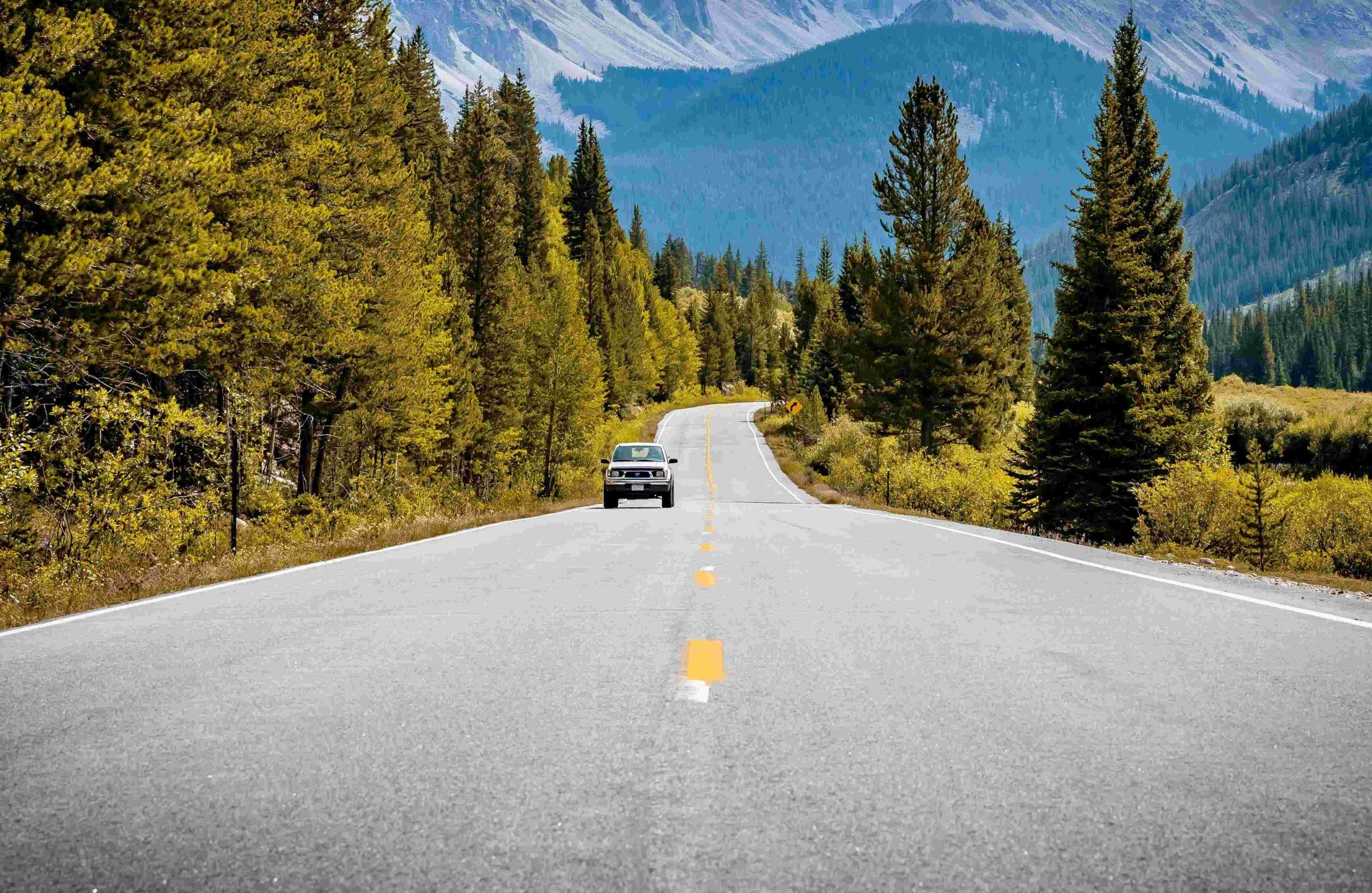
Buying a used car in Colorado can feel like a thrilling adventure—until your “dream car” can’t climb a mountain pass or survive just one winter before rusting away! Before you dive into this wild ride, remember: always run a Colorado license plate lookup to avoid surprises (and a tow truck call) down the road.
Why Smart Shoppers Always Prepare
Preparing to buy a used car can help you avoid costly mistakes and find a reliable vehicle. Start by researching the car’s history to uncover any past accidents, title issues, criminal involvement, or flood damage. Check maintenance records to ensure it has been regularly serviced. A thorough inspection by a mechanic can reveal hidden mechanical problems like engine wear. Running a vehicle history report via a Colorado license plate check or VIN heck provides key details, such as odometer fraud or salvage titles, helping you make a more informed, confident decision and negotiate a fair price.
Colorado Used Car Buying Guide
Colorado’s used car market is diverse, featuring rugged trucks and SUVs for mountainous terrain and fuel-efficient sedans for city driving. Local dealerships and online platforms ensure competitive pricing. Buyers prefer AWD and 4WD vehicles for winter conditions, while urban areas like Denver and Boulder favor smaller cars. Reliable heating and cooling systems are also prioritized due to the state’s extreme climate.
Major Considerations for Used Car Buyers
1. All-Wheel-Drive/4WD: Due to the mountainous terrain and unpredictable weather, Colorado buyers prioritize vehicles with all-wheel or four-wheel-drive systems for safe and reliable transportation, especially in winter.
2. Fuel Efficiency: In urban centers like Denver, rising fuel costs make fuel-efficient vehicles an attractive option for daily commuting.
3. Vehicle Durability: Harsh winter weather, road salt, and rugged driving conditions lead buyers to seek vehicles with durable frames, quality rust protection, and good resale value.
4. Adventure-Readiness: Colorado is known for its outdoor recreation, so vehicles capable of hauling gear, navigating off-road trails, and camping are popular.
5. Environmental Considerations: Colorado has a growing market for hybrid and electric vehicles as residents become more eco-conscious and the state promotes greener initiatives.
Benefits of Buying a Used Car in Colorado
| Lower Purchase Price | Used cars typically cost significantly less than new vehicles, allowing buyers to get more car for their money. This is particularly beneficial for budget-conscious shoppers. |
| Reduced Depreciation | New cars lose value quickly, with the steepest depreciation occurring within the first few years. Buyers can avoid this rapid depreciation by purchasing a used car and retaining more value over time. |
| Variety of Options | Colorado’s diverse used car market offers a wide range of makes and models, providing buyers with numerous choices to suit their preferences and needs. |
| Lower Insurance Costs | Insurance premiums for used cars are generally lower than for new cars, resulting in savings on monthly insurance payments. |
| No Sales Tax on Certain Transactions | Colorado has specific rules regarding sales tax for vehicle purchases. Depending on the seller (private sales vs. dealerships), buyers might find tax advantages that can lower the overall cost. |
| Vehicle History Reports | Many used car sellers provide vehicle history reports (such as Carfax or AutoCheck), allowing buyers to review the car’s history, including past accidents, service records, and title issues. This information can help buyers make informed decisions. |
| Inspection and Certification | Certified Pre-Owned (CPO) programs from manufacturers offer vehicles that have undergone thorough inspections and come with extended warranties, providing added peace of mind for buyers. |
| Environmental Benefits | Buying used cars can be more environmentally friendly, as it reduces the demand for new manufacturing, which has a larger carbon footprint. |
| Lower Registration Fees | Colorado’s vehicle registration fees can be lower for used cars, depending on the vehicle’s age and value, leading to further cost savings. |
| Potential for Reliable Models | Many used cars are known for their reliability, especially if they have been well-maintained. Buyers can often find vehicles that have a proven track record. |
Colorado’s Diverse Terrain and Climate

Colorado’s breathtaking mountainous landscapes and varied climate play a pivotal role in shaping vehicle preferences across the state. With a terrain that shifts from towering peaks and steep hills to vast flat plains, drivers require vehicles that can tackle a wide range of driving conditions. The state’s reputation for heavy snowfall, especially in winter, combined with its rapidly shifting weather patterns, highlights the need for reliable vehicles that excel in safety and performance.
As drivers navigate Colorado’s challenging roads, certain vehicle types stand out for their remarkable capabilities and adaptability. Four-Wheel Drive (4WD) vehicles are ideal for off-road adventures and rugged terrain, offering exceptional traction and stability in snow, mud, and rocky paths. All-Wheel Drive (AWD) vehicles cater to those who frequently encounter winter conditions without venturing off-road, distributing power to all wheels for enhanced grip on slippery surfaces. Sport Utility Vehicles (SUVs) are particularly favored in Colorado, featuring higher ground clearance, spacious interiors, and options for both 4WD and AWD, making them well-suited for city streets and rural landscapes alike. Additionally, in high-altitude and rural regions, factors like engine performance, suspension, clearance, fuel efficiency, and reliability become vital for maintaining safety and performance across diverse terrains and climates.
Most In-Demand Used Car Types
1. Trucks
Pros:
– High towing capacity, suitable for transporting equipment or recreational gear.
– Robust performance in varying weather conditions and terrains.
– Spacious interiors for passengers and cargo.
Cons:
– Fuel consumption can be high, impacting operating costs.
– Can be cumbersome in tight urban spaces or parking situations.
Examples: Ford F-150, Chevrolet Silverado, Ram 1500
2. SUVs
Pros:
– Versatile, with ample cargo space and seating capacity.
– Good all-weather capability, especially with all-wheel drive options.
– Higher driving position for better visibility.
Cons:
– May have higher insurance premiums compared to sedans.
– Larger size can lead to difficulty in city driving and parking.
Examples: Jeep Grand Cherokee, Toyota RAV4, Subaru Forester
3. All-Terrain Vehicles (ATVs)
Pros:
– Designed for off-road capabilities, ideal for Colorado’s rugged terrain.
– Excellent ground clearance and traction for snowy or rocky conditions.
Cons:
– Limited fuel economy compared to conventional cars.
– Can be noisy and uncomfortable on long drives.
– Specific Models Well-Suited for Colorado’s Landscape
Examples: Subaru Outback, Toyota 4Runner, Ford Bronco
Models Well-Suited for Colorado’s Landscape
The passion for trucks, SUVs, and all-terrain vehicles reflects Colorado’s lively lifestyle and varied driving conditions. Each vehicle offers unique benefits and challenges, but the highlighted models are designed to meet the desires of Colorado drivers, whether tackling daily commutes or setting off on weekend adventures.
Ford F-150
Celebrated for its dependability and strength, the F-150 shines in towing and off-road adventures. Its adaptability has made it a top choice for outdoor enthusiasts seeking adventure.
Jeep Grand Cherokee
With remarkable off-road prowess and a smooth ride, the Grand Cherokee is tailor-made for Colorado’s rugged terrain, offering plenty of room for all your adventure gear.
Toyota 4Runner
Renowned for its toughness and reliability, the 4Runner delivers impressive off-road capabilities and is ready to tackle Colorado’s diverse landscapes with ease.
Subaru Outback
This crossover blends car-like agility with SUV versatility. Its all-wheel drive excels in snowy conditions, while ample cargo space accommodates all your outdoor gear.
Toyota RAV4
A compact SUV with a stellar reputation for reliability, the RAV4 combines excellent fuel economy with all-weather performance, making it an ideal companion for both urban commutes and outdoor escapades.
Car Inspection Tips: What to Look for in a Colorado Used Car
Taking the opportunity to examine a used car with these considerations will deepen your understanding of its condition and longevity in Colorado’s unique climate. Consider bringing along a trusted mechanic or a knowledgeable friend for their valuable insights.
| Exterior Inspection | Look for scratches, dents, and paint chipping, which can be more prevalent due to snow and ice buildup. Inspect the paint for signs of fading, especially on the hood and roof.
Check the seals around windows and doors for cracks or wear, as these can be compromised by extreme temperatures. |
| Underbody Inspection | Examine the undercarriage for signs of salt corrosion, especially if the vehicle has been driven on salted roads during winter months. Salt can lead to significant rust damage over time. |
| Windshield and Glass | Look for cracks or chips in the windshield, which can worsen in fluctuating temperatures. Ensure that the defrosters and wipers are in good working condition. |
| Suspension and Steering | Test drive the car to assess the suspension. Pay attention to how the car handles on rough or uneven roads, which can be more common in mountainous regions.
Listen for any unusual noises when turning, which may indicate wear on the suspension components. |
| Engine Components | Check the belts and hoses for signs of cracking or fraying, as extreme temperature changes can cause these components to deteriorate more quickly. |
| Engine Condition | Review the engine for leaks, especially oil and coolant, which can be exacerbated by cold weather. Check the oil level and condition; it should be a clear, amber color without particles.
Ask for maintenance records to ensure regular oil changes and checks have been performed. |
| Rust Inspection | Inspect common rust-prone areas such as the wheel wells, door sills, and the undercarriage. Rust can be a major issue in vehicles exposed to harsh winter conditions.
If possible, use a magnet to test for body filler or patch repairs that may indicate previous rust damage. |
| Tire Quality | Inspect the tires for tread depth and even wear patterns. Colorado’s varied terrain demands quality tires for traction, especially in winter.
Look for any signs of dry rot or cracks in the sidewalls, which can indicate that tires need replacing sooner than expected. |
Private Seller vs. Dealership: Pros and Cons in Colorado
| Private Seller | Dealership |
Pros:
|
Pros:
|
Cons:
|
Cons:
|
Legal and Logistical Considerations
Title Transfer
Both private sellers and dealerships are required to complete a title transfer, but dealing with a dealership often makes the process easier since they typically manage all the paperwork for you.
Emissions Testing
Emissions testing is mandatory for certain vehicles. Dealerships usually guarantee that their cars adhere to these standards, while private sellers might not consistently follow them.
Warranties
Private sellers typically do not provide warranties, so sales are often “as-is.” In contrast, dealerships often present limited warranties or certified pre-owned (CPO) programs, giving buyers extra reassurance.
Return Policies
With private sellers, there’s generally no return policy in place, and all sales are final. On the other hand, some dealerships might provide a return policy or satisfaction guarantee, but the specifics can differ widely. It’s wise to carefully review the details to avoid surprises later on.
How to Negotiate the Best Deal Based on Local Market Conditions

Research Vehicle Prices
Use online resources like Kelley Blue Book, Edmunds, or local classified ads to understand the fair market value of the vehicle you are interested in.
Know Your Budget
Set a firm budget and stick to it. Consider not only the vehicle price but also taxes, registration, and insurance costs.
Be Prepared to Walk Away
Whether dealing with a private seller or a dealership, showing that you are willing to walk away can give you leverage in negotiations.
Timing
Think about shopping at the end of the month or during quieter seasons, such as winter, as dealerships may be more motivated to sell to reach their sales targets.
Inspection and Test Drive
Make sure to thoroughly check the vehicle and take it for a test drive. If you’re dealing with a private seller, it’s wise to arrange for a trusted mechanic to perform a pre-sale inspection.
Use Local Market Trends
Stay informed about local inventory and demand. If a specific model is plentiful, sellers might be more open to negotiating the price. Weighing the advantages and drawbacks of choices, while being aware of the legal and logistical details, allows Colorado car buyers to make confident, well-informed decisions that align with their needs.
Buying a used car in Colorado can be an exciting adventure, but it’s essential to ensure your vehicle is ready to tackle the state’s unique conditions. To avoid unexpected issues, make sure to do a Colorado license plate search before making a purchase. It could save you from costly surprises and ensure your “dream car” remains roadworthy for years to come.